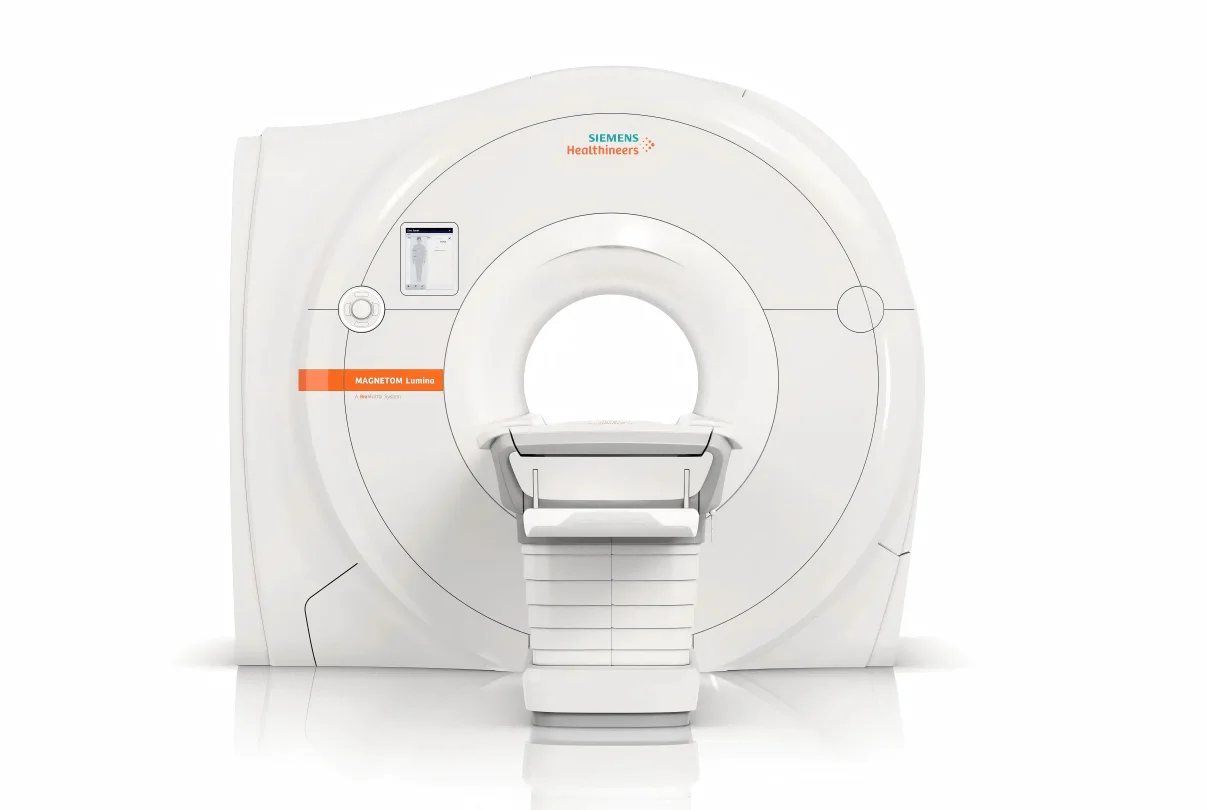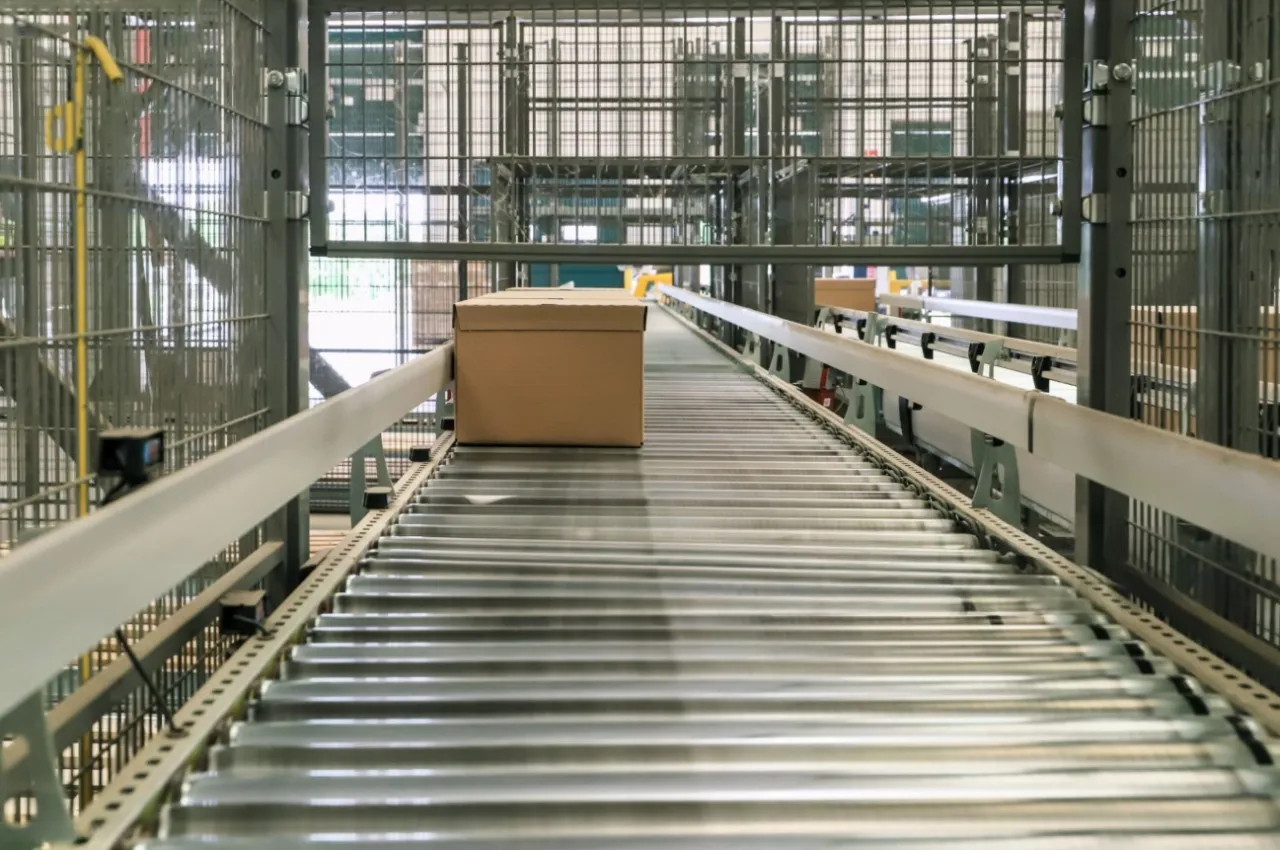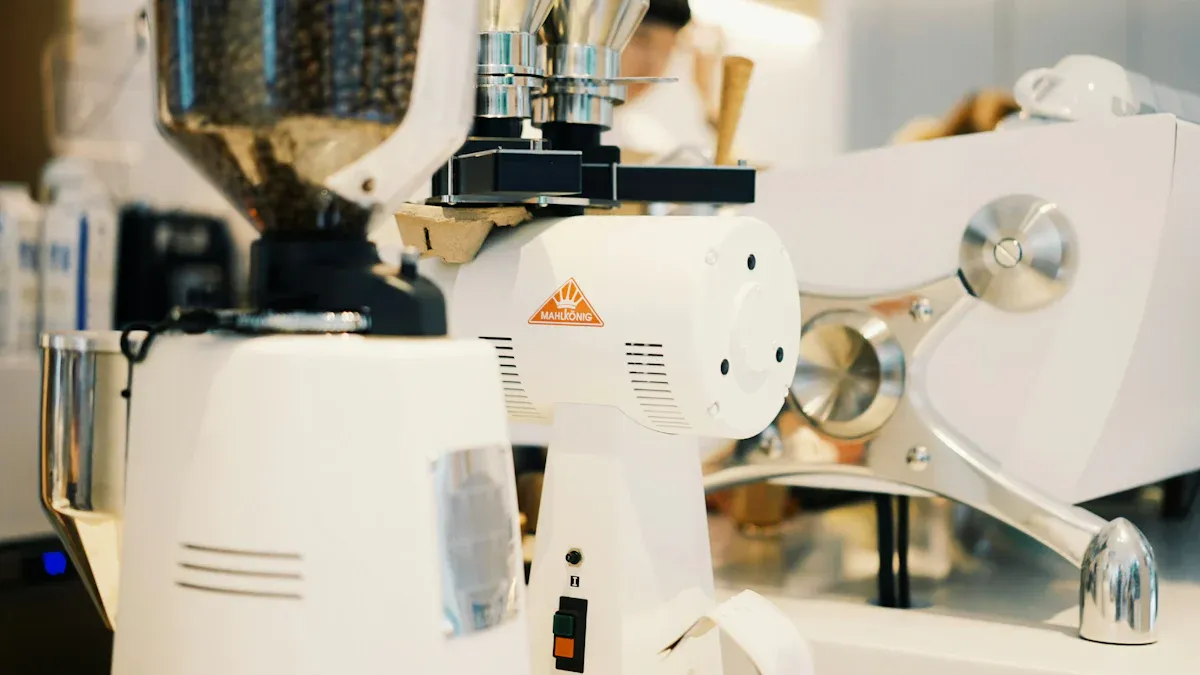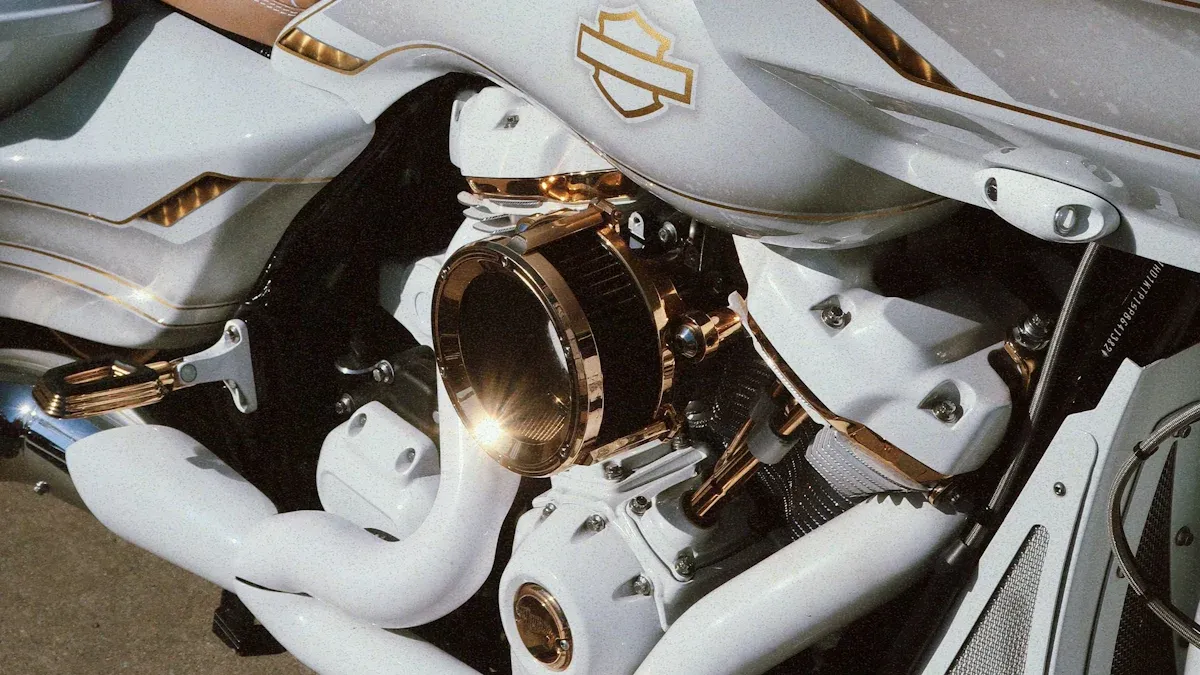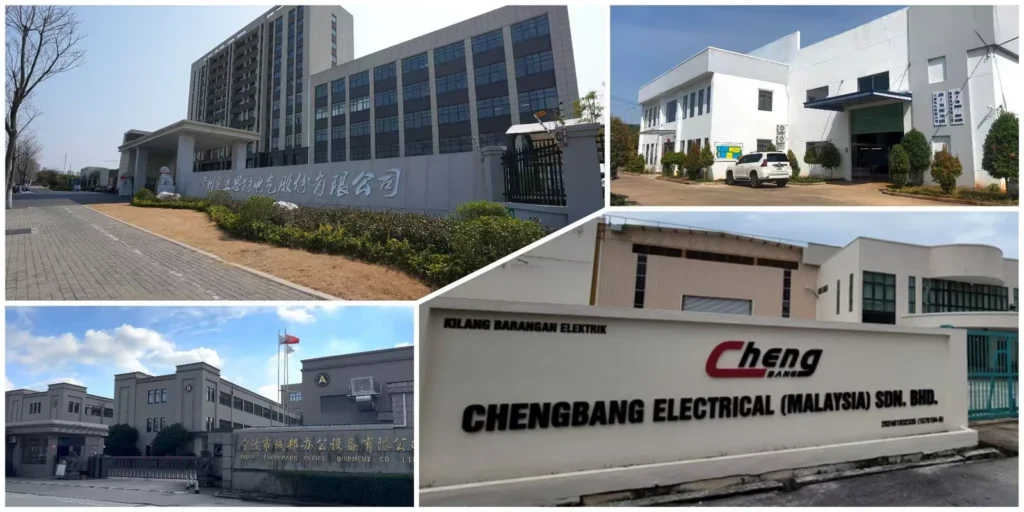Why Three-phase AC Induction Motors Lead Industrial Efficiency
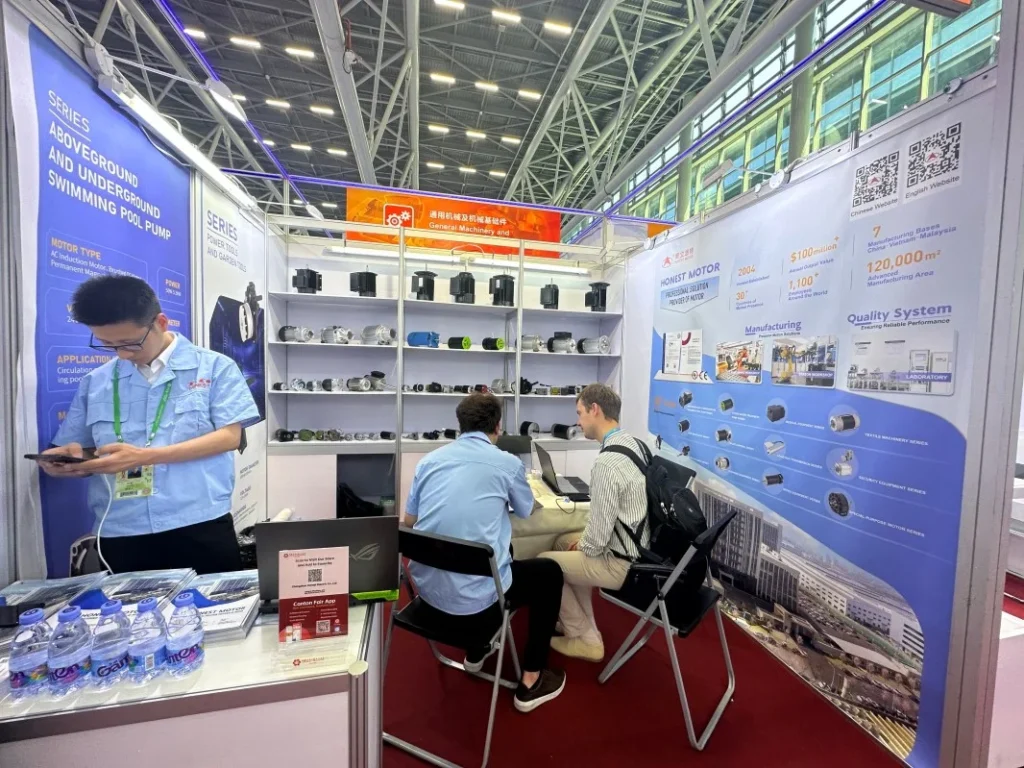
In factories, working efficiently is very important for success. Three-phase AC Induction Motors are great for saving energy and adapting to needs. Did you know electric motors use up to 80% of factory energy? Switching to better motors can save a lot on electricity bills. Slowing a motor’s speed by half can cut power use by 80%. These motors handle heavy work while wasting less energy. They help businesses work well and stay eco-friendly.
Key Takeaways
-
Three-phase AC motors use less energy and lower power bills. They are a great option for factories.
-
These motors last long and work well. They have fewer parts, so they need less fixing and stay useful longer.
-
AC motors can fit different factory needs. They offer flexible power choices and work with modern systems.
-
Adding variable frequency drives (VFDs) to AC motors saves up to 50% energy. This makes work more efficient.
-
Buying AC motors helps the planet by cutting pollution and supporting green practices.
Key Benefits of Using AC Motors in Industrial Applications
Energy Efficiency and Sustainability
Choosing AC motors is a smart way to save energy. These motors turn about 85% of electricity into useful power. This means less energy is wasted. Using them lowers electricity bills and cuts business costs.
AC motors also help the environment. For example:
-
Efficient motors can save up to 1575 energy units nationwide.
-
This means less carbon dioxide is released, helping the planet.
In industries like HVAC, AC motors with variable-frequency drives (VFDs) save 20%-50% energy. They adjust speed based on what’s needed. This saves energy and makes work eco-friendly.
Here’s a table showing energy savings and CO2 reductions with AC motors:
|
Material |
Energy Saved (MJ) |
CO2 Reduced (tCO2) |
|---|---|---|
|
Copper |
494.18 |
207.69 |
|
Aluminum |
4036.9 |
544.71 |
|
Magnetic sheet |
460.8 |
446.98 |
|
Steel |
35.96 |
8.64 |
|
Total |
5027.86 |
1208.03 |
Switching to AC motors saves energy and supports a greener future.
Durability and Reliability in Harsh Environments
AC motors are tough and last a long time. They have a simple design with fewer moving parts. This makes them reliable and reduces wear. For harsh workplaces, they are a great choice.
Special motors, like IEEE-841 models, are made for tough conditions. These motors often have warranties up to five years. Regular motors usually have only one-year warranties. Companies like Weyerhaeuser use these motors to avoid frequent breakdowns. This saves time and repair costs.
Features that make AC motors reliable include:
-
Brushless Design: Less friction and heat for smooth running.
-
Self-Starting: Easy to start, even in tough jobs.
-
IP-rated Housings: Protect against dust, water, and other damage.
With over 50,000 hours of average working time, AC motors are dependable. They keep work running smoothly, even in hard conditions.
Cost-effectiveness for Long-term Operations
Buying AC motors is a smart money-saving choice. They are efficient and need little maintenance. This saves money over time. Their simple design makes them easy to care for.
Here’s why AC motors save money:
-
Lower Costs: They use less electricity, cutting bills.
-
Long-lasting: They are durable, so replacements are rare.
-
Flexible: Work with VFDs to control speed and save energy.
In industries, motors use about 65% of electricity in the EU. Switching to efficient AC motors can cut energy costs a lot. For example, in Slovenia, industries use 52% of all electricity. Efficient motors can save big in such cases.
Choosing AC motors means saving money and improving how your business works.
Adaptability to Diverse Industrial Needs
AC motors are flexible tools that fit many industries’ needs. Whether in factories, car-making, or food production, these motors boost work speed and save energy. Their ability to handle different tasks makes them essential for modern businesses.
Why AC Motors Work Well Everywhere
-
Customizable Power Options
AC motors come in power levels from 0.12kW to 315kW. This range lets them work in small or big jobs. For example, light motors are great for conveyor belts. Strong motors are perfect for cleaning water in treatment plants. -
Compatibility with Advanced Systems
AC motors work easily with variable frequency drives (VFDs). VFDs help control motor speed and force for specific tasks. In textile factories, this feature helps machines run smoothly and use less energy. -
Environmental Resilience
These motors perform well in tough places. Their IP55-rated covers keep out dust, water, and oil. This makes them useful in mining and food factories. They stay reliable even in hard conditions.
Real-world Applications
AC motors are helpful in industries with special needs. Here’s how they work:
-
Manufacturing: Running robotic arms and assembly lines with accuracy.
-
Automotive: Giving strong power for electric car parts.
-
Food Processing: Keeping mixers and grinders clean and safe.
-
Renewable Energy: Helping wind turbines and solar panels work better.
Their flexibility ensures steady performance in many situations.
The Honest Advantage
Honest’s three-phase AC motors are even more adaptable. They have features like copper rotors and F-class insulation for frequent use. They work well with VFDs and meet IE3 energy rules, making them great for eco-friendly industries.
Choosing Honest means getting motors that are reliable and fit your needs.
Tip: If your business needs flexibility and energy savings, AC motors are the best choice. They adjust to tasks and save money over time.
How Honest’s Three-phase Alternating Current Asynchronous Motor Drives Efficiency
Advanced Features for Industrial-grade Performance
Honest’s three-phase squirrel-cage induction motors are made for tough jobs. They are built to last and work well in hard conditions.
Key features of these motors include:
-
High Torque for Heavy-duty Applications: These motors are strong enough for conveyor belts and mixers.
-
Precision for Critical Operations: They work accurately for tasks like robotic arms in factories.
-
Fast Response Times: They are quick, making workflows smooth and efficient.
-
Energy Efficiency: They use less energy, saving money and improving product quality.
Here’s a table comparing motor types and their improvements:
|
Motor Type |
Innovations and Performance Improvements |
|---|---|
|
Permanent Magnet (PM) Motor |
Very efficient but expensive due to rare earth magnets. |
|
Synchronous Reluctance Motor |
Better control systems, with new 60 Hz versions coming soon. |
|
Switched Reluctance (SR) Motor |
Custom designs that can outperform synchronous reluctance motors. |
|
Induction Motor |
Few changes due to old designs, often sticking to safe updates. |
Honest’s motors are affordable and last a long time, making them popular worldwide.
Tip: Honest’s motors are a great choice for efficiency and strong performance.
Integration with Variable Frequency Drives
Honest’s three-phase AC motors work well with variable frequency drives (VFDs). This lets you change motor speed and torque for different tasks. It helps save energy and improves performance.
Here’s how VFDs help in different industries:
|
Industry/Application |
Benefits of VFD Integration |
|---|---|
|
Infrastructure Development |
Saves energy and makes systems like HVAC more reliable. |
|
Oil and Gas |
Improves motor efficiency, lowers energy costs, and handles changing loads. |
|
HVAC Systems |
Controls fan and pump speeds, cuts energy use, and makes equipment last longer. |
For example, in HVAC systems, VFDs can lower energy use by up to 50%. This saves money and helps equipment last longer.
Honest’s motors are strong and work well with VFDs, giving you reliable and efficient results.
Compliance with Energy Efficiency Standards
Honest’s motors meet global energy-saving rules. They follow certifications like IE3 to help reduce energy use and carbon emissions.
Here’s a table of energy certifications by region:
|
Region |
Certification/Standard |
|---|---|
|
North America |
Includes CEC, NRCan, DOE, and CONUEE certifications. |
|
Europe |
Certified by the European Commission (EU). |
|
Middle East |
Includes SL&S, EESL, and other energy labeling programs. |
|
Asia Pacific |
Covers GEMS, EECA, and energy labels from countries like China, Singapore, and Thailand. |
|
Global |
ENERGY STAR® certification for energy and water conservation standards. |
Honest’s motors also meet DOE rules in the U.S., NRCan standards in Canada, and ISO testing in Mexico. These certifications show Honest’s motors are energy-efficient everywhere.
Note: Choosing Honest’s motors helps meet energy rules and supports a greener planet.
Applications of AC Induction Motors Across Industries
Manufacturing and Automation
AC motors are widely used in factories for their quiet work. They power robotic arms, conveyor belts, and assembly lines. These motors provide steady power and save energy, making them affordable for many industries.
As factories use more robots and machines, AC motors are in higher demand. They are strong and reliable, keeping work running smoothly. New designs and better materials make these motors even more useful. They help businesses save money and cut pollution.
Industries like car-making, textiles, and medicine depend on AC motors. Their long-lasting and quiet performance ensures smooth production, making them essential for modern factories.
Automotive and Water Treatment
AC motors are important in car-making and water treatment plants. In car factories, they power pumps and compressors, working efficiently and reliably. The rise of electric cars has increased the need for AC motors because they save energy and adapt well to EV systems.
In water treatment plants, AC motors handle big jobs like pumping and cleaning water. They are quiet and last a long time, reducing the need for repairs.
|
Sector |
Key Insights |
|---|---|
|
Water Treatment |
AC motors are ideal for heavy tasks like pumping and cleaning water. |
|
Automotive Industry |
Electric cars need AC motors for their energy-saving and reliable performance. |
These examples show how AC motors solve problems in different industries.
Food Processing and Hygienic Environments
AC motors are vital in food factories and clean workplaces. They run mixers, grinders, and conveyors smoothly and quietly. Their special covers protect them from dust, water, and oil, making them perfect for clean environments.
In places needing cleanliness, AC motors work quietly, reducing noise and helping workers focus. They can handle many jobs, like packaging and mixing, while staying efficient.
Food factories and other industries like AC motors because they save energy and last long. This lowers costs and boosts productivity, making them a smart choice for businesses.
Tip: If your work needs quiet, reliable, and energy-saving motors, AC motors are the best option.
Renewable Energy and Smart Systems
Renewable energy and smart systems are changing how industries work. They are used in solar farms, wind turbines, and smart grids. Three-phase AC induction motors are key to these improvements. Their efficiency and flexibility make them great for this sector.
In renewable energy setups, these motors power important parts. They move wind turbine blades and control solar tracking systems. They handle changing loads well, keeping things running smoothly. This makes them a top choice for industries going green.
Smart systems also use these motors effectively. They work with advanced tools like IoT and AI. This lets you check and adjust motor performance instantly. For example, in smart factories, these motors change speed and torque for each task. This saves energy and boosts productivity.
These motors work well with variable frequency drives (VFDs). VFDs help control motor speed for precise tasks. This makes them useful in both renewable energy and smart factories.
Choosing three-phase AC induction motors is a smart investment. They save energy and support global sustainability goals. Their ability to fit many uses keeps them valuable as technology grows.
Tip: Upgrade your systems with these motors for better performance. They excel in renewable energy and smart systems.
Why AC Induction Motors Outperform Alternatives
Comparison with Single-phase Motors
Three-phase AC induction motors work better than single-phase motors. Single-phase motors need extra parts like capacitors to start. These parts make them more complicated and less reliable. Three-phase motors create a steady magnetic field. This makes them run smoothly and start with more power.
Here’s a simple comparison:
|
Motor Type |
Advantages |
Disadvantages |
|---|---|---|
|
AC Induction Motors |
Strong, easy to maintain, affordable |
None specified |
|
Single-Phase Motors |
None specified |
Less efficient, heavier, needs extra starting parts |
Single-phase motors lose more energy because of their uneven magnetic field. This causes more heat and lowers efficiency. Three-phase motors spread the energy across three windings. This reduces losses and improves how well they use electricity.
Tip: For big jobs, pick three-phase motors. They are more powerful and efficient.
Comparison with DC Motors
AC induction motors are also better than DC motors for factories. DC motors give strong power at low speeds but need more care. Their brushes wear out and need replacing often. This adds to costs and downtime. AC motors don’t have brushes, so they last longer and need less fixing.
|
Aspect |
AC Motors |
DC Motors |
|---|---|---|
|
Efficiency |
Lower due to brush wear |
|
|
Maintenance |
Easy, no brushes to replace |
Hard, brushes wear out quickly |
|
Applications |
Fans, pumps, conveyor belts |
Robots, electric cars, power tools |
AC motors can change speed and power easily. This makes them great for jobs like running pumps or conveyor belts.
Long-term Benefits in Industrial Settings
AC induction motors save money over time. Their simple design makes them strong and easy to care for. Many factories are switching to these motors to save energy and meet new rules.
Why they’re a smart choice:
-
Use less energy, thanks to better designs.
-
Work with smart tools like IoT to track performance.
-
Last a long time, cutting repair costs and downtime.
As businesses aim to be eco-friendly, AC motors are the best option. They save energy and work reliably.
Note: Buying AC induction motors now means spending less and working better later.
Three-phase AC induction motors are key to making industries efficient. They are built to be strong, save energy, and work in many areas. Their main benefits are:
-
Reliability: Wye and delta setups make them last longer.
-
Efficiency: Less downtime means lower costs and energy use.
-
Durability: They handle tough jobs without trouble.
|
Advantage |
What It Means |
|---|---|
|
Reliability |
Smart care plans keep motors running longer and better. |
|
Efficiency |
Better performance saves energy and cuts expenses. |
|
Predictive Maintenance |
Using past data helps avoid problems and keeps work smooth. |
Honest focuses on creating advanced motors for your needs. As smart factories and AI grow by 9.52% yearly, Honest’s motors are ready for the future. Choosing Honest means getting modern technology that helps both the planet and your business grow.
Tip: Switch to Honest’s motors now to stay ahead in industry progress.
FAQ
Why are three-phase AC induction motors better than single-phase motors?
Three-phase motors give steady power and work more efficiently. They start easily without needing extra parts like capacitors. They last longer and save energy, making them great for industries.
Tip: Use three-phase motors for big jobs and saving money over time.
Can Honest’s motors work in tough environments?
Yes! Honest’s motors have IP55-rated covers to block dust, water, and oil. They also have strong bearings and windings to work well in hard places like mines or food factories.
Do Honest’s motors work with smart systems?
Yes! Honest’s motors connect easily with variable frequency drives (VFDs). This helps control speed, save energy, and work with IoT and AI tools for smart factories.
How do Honest’s motors help the environment?
Honest’s motors meet IE3 energy rules, using less energy and cutting carbon emissions. They last a long time, reducing waste and helping eco-friendly businesses.
Which industries use Honest’s motors the most?
Honest’s motors are great for factories, car-making, water plants, food factories, and green energy. Their flexibility and efficiency make them useful in many industries.
Note: Honest’s motors are designed to fit your industry’s needs.
